I’ve always been intrigued by the proverbs or sayings that different countries and languages have. Some simply don’t make sense in translation, while others can tell you a lot about that place. It makes sense the references that are used when you understand the culture, or even begin to understand where people are coming from. I have searched high and low for Moroccan proverbs. Some I’ve heard people use but I’ll admit they don’t make as much sense in translation. One definition of a proverb is, “a short pithy saying in common and recognised use; a concise sentence, often metaphorical or alliterative in form, which is held to express some truth ascertained by experience or observation and familiar to all.” That makes a lot of sense to me. But then I found this definition in an online essay.
“proverbs can provide a snapshot of other cultures that allows for a more thorough understanding of both language and culture”, i.e. proverbs can be the eyes that provide a window to a culture’s soul. “
Because I knew they were out there I went to a Facebook group I am part of to ask some Moroccan friends to share proverbs that they knew relating to food and life. I put together some of my favorites here. I’m sharing in Darija and English for both readers. A word of note, Darija isn’t standard, I’ve used the spelling that my Moroccan friends used but as most Darija speakers will tell you there’s a lot of variation.
Half the fun of sharing these is seeing how others interpret them. I wouldn’t be surprised if different readers from different cultures had very different interpretations!
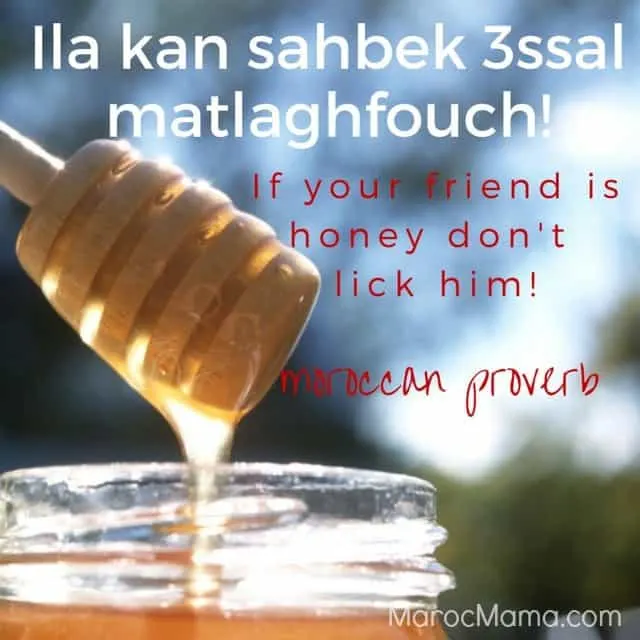
This was one I had heard before but makes me smile. “If your friend is honey, don’t lick him.”
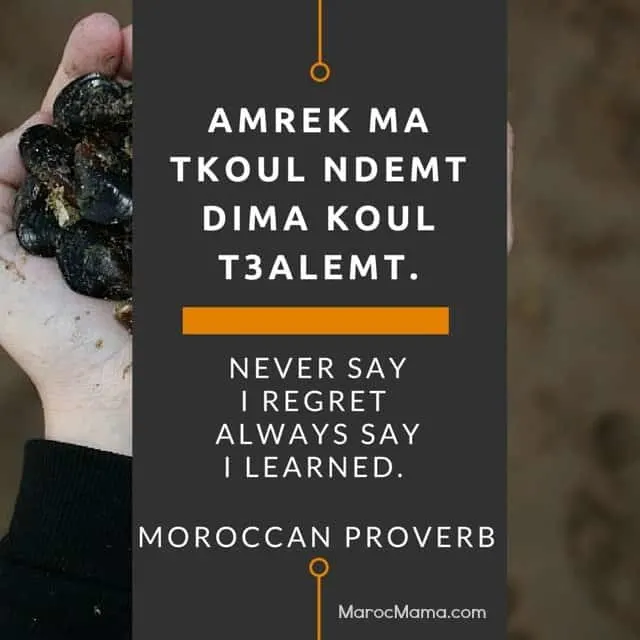
I’ve made this my favorite and my new background. “Never say I regret, always say I learned.”
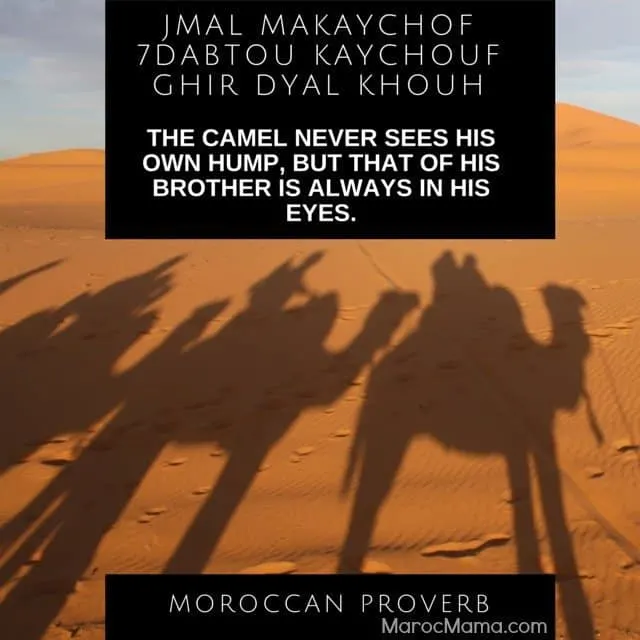
How true is this? “The camel never sees his own hump but that of his brothers is always in his eyes.”
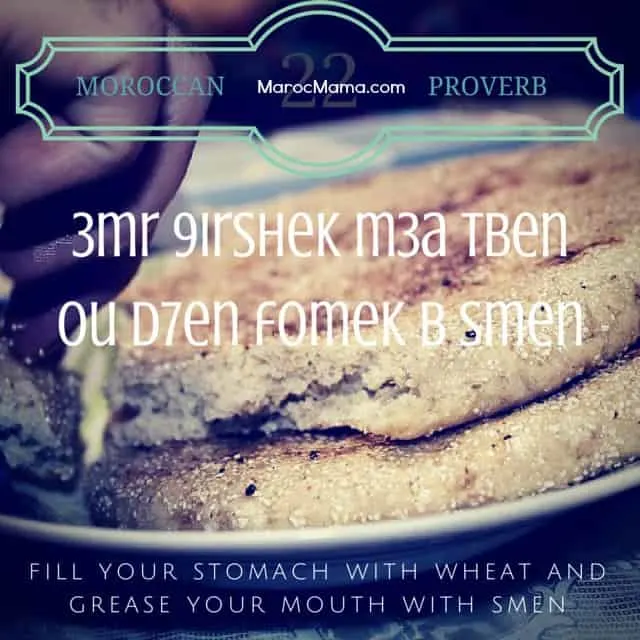
“Fill your stomach with wheat and grease your mouth with smen.” (smen is a Moroccan butter)
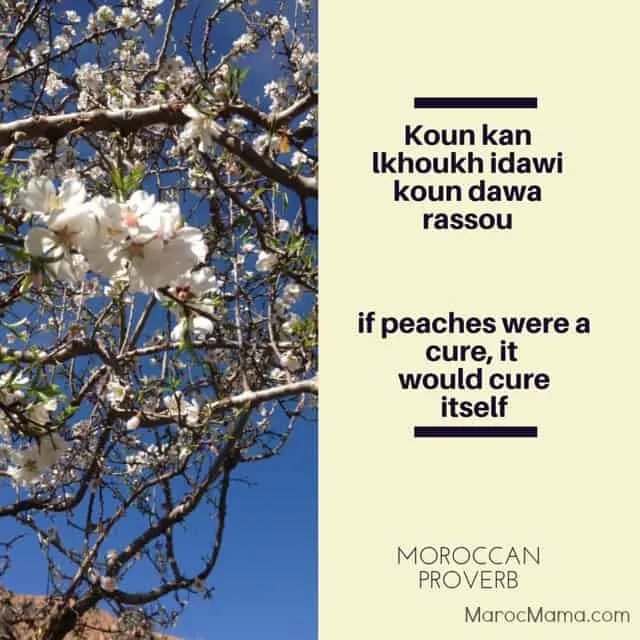
This is something I can totally hear an old Moroccan woman saying, “If peaches were a cure, it would cure itself.”
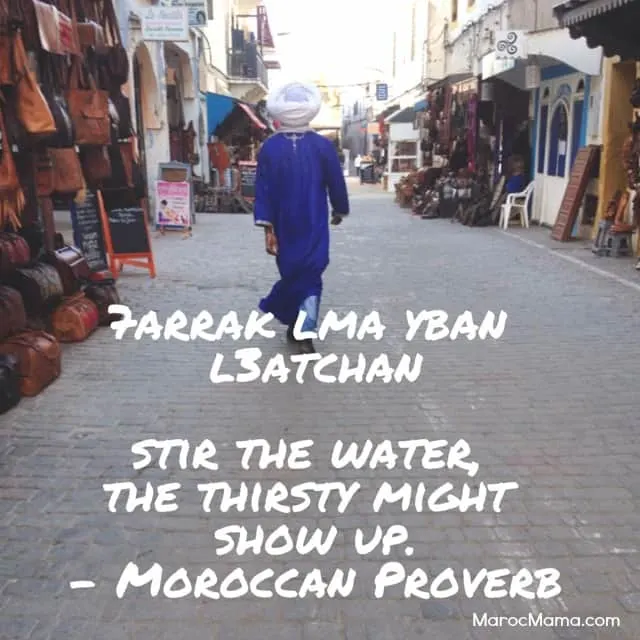
Water and food are central in many Moroccan proverbs. “Stir the water and the thirsty might show up.”
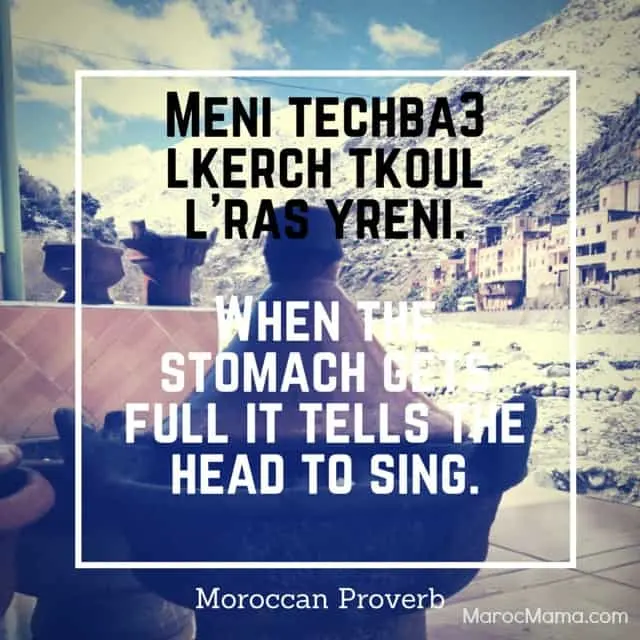
This may be the only one that transcends culture! “When the stomach gets full it tells the head to sing”
Feel free to save, share or pin these pictures to keep them for later. You never know when the right time will turn up to use one.
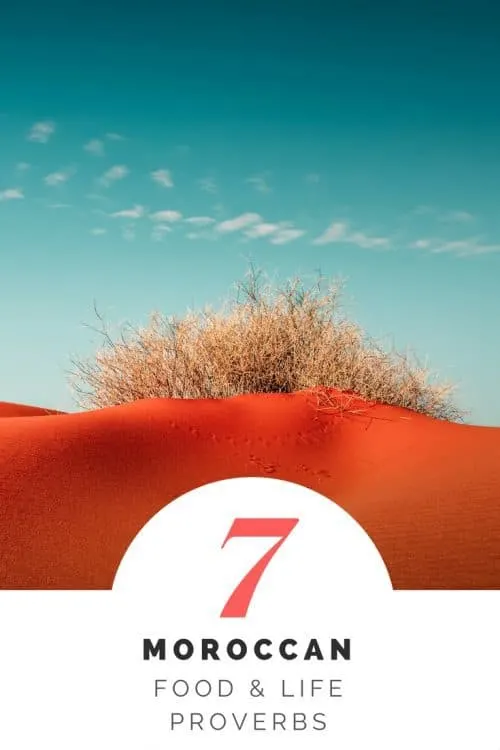
Soufiane
Tuesday 26th of May 2020
Hello. I was searching the web for articles related to Moroccan food and somehow I end up here. i just want to share another Moroccan proverb which is related to food and hospitality. It says " the guest should not stipulate and the host should not be ungenerous " it means if you are the guest or offered good service don't b picky just a accept whatever you have been offered with kind heart. if you are the host or the one to offer, than you should offer the best you can.
foodtrek
Tuesday 18th of July 2017
[…] are two lovely Morocan proverbs from: Maroc Mama aka Amanda ‘s blog about a life of travel and food that I must envy! I truly agree with the above […]
ayşegül kıvanç
Saturday 23rd of May 2015
Dear Amanda, am from Turkey and I just came across your blog while I was searching for= the meaning of two Moroccon proverbs. I need to understand what they exact= ly mean according to Moroccon culture as I have been working on an article = on transfer og cultural norms through translation. These two sayings are from a Moroccon character, Abed, in one of Elif Shafak's novel. The proverbs in-question and my questions are as below: 1. "A good friend is better than milk." Why "milk"? what is the significance of milk? 2. "Why the rush?... As they say, we are not eating egg-plant, are we? What is the meaning of this? What is the link between hurrying and eating egg-plant?? I would appreciate you could enlighten me about these proverbs. Thank you.
Amanda Mouttaki
Wednesday 10th of June 2015
I'm sorry for the delay but hopefully this is still helpful. So 1)Milk is a symbol of purity and "goodness" so a good friend is pure and has a good heart. 2) It means to take your time. The connection is that eggplant is something common, something you would eat without thought. The character is saying slow down and enjoy it (whatever they're referring to).
rubia
Friday 3rd of April 2015
I am so sorry to hijack your article but i tried to email but had problems doing so. I am in Marrakech on my last day and promised my mum i will bring home medjool dates for her. Can you PLEASE recommend a place to buy them today???
Amanda Mouttaki
Friday 3rd of April 2015
emailed you!
Soufyan
Tuesday 24th of March 2015
Salam. I came across your blog and I just love it. I apologize if it seems like I'm invading your private space. My favorite Moroccan proverb is: Lli ma jal, ma3rf b 7aq Errjal / One who does not travel will not know that value of men. I wish you good health to you and your lovely family.